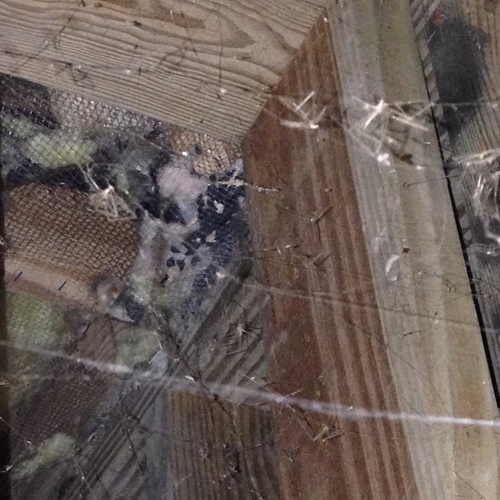You might think you don’t have anything to worry about—the building management will take care of issues while you are away. Not true! The owner is responsible for drip pans overflowing, water heater leaks, burst pipes and other damages. Not only are you responsible for damages to your unit, you may be responsible for damages to common property and other condo units as well. What if your AC shuts down due to a faulty humidistat? Given the right conditions, mold can grow in this humid climate within 72 hours.
What some condo owners don’t know is that some Associations require that the condo owner have a home watch, and some insurance policies may not pay claims if the property is vacant for weeks and/or months at a time. Check your Association rules and insurance policy for specifics.
No matter how much precaution you’ve taken while preparing your home for vacancy, it is still prudent to have a local liasion who can make routine checks on your home, and who will be readily available to further protect your home in the event of a catastrophic event such as a hurricane or tropical storm.
Alarms And Home Monitoring Apps For Your Smartphone: Pros And Cons
For those who are tech-savvy, there are several apps that can be downloaded and used to monitor your home from your smartphone. The features vary from product to product but generally speaking, these apps can alert you if there is an extreme change in temperature in your home, if carbon dioxide is detected, or if a door or window appears to have been breached by an intruder. Many of these apps even have a camera feature so you can view the interior of your home right from your phone. While these apps are very convenient and priced affordably, the downside is that they work reactively rather than proactively, meaning that any notification you receive is going to be AFTER the problem has already occurred and may have already escalated to major damage. Once a notification is received, depending on the nature of the alert, you still have to find a local authority or contractor to remedy the situation for you and attempt to monitor their progress remotely.

Why do I need to pay someone to watch my property when my neighbor is willing to check on things while I am away?
You do not have to, unless you want the Peace of Mind knowing that your home is being looked after by a Trained, Certified, Insured and Bonded Professional. Here’s the question that you have to ask yourself? Am I willing to ask my friend, neighbor or relative to pay for damages, IF they are negligent in their home watch duties? The average cost to remediate and repair small damage is as low as $500 to $6,000 on average-but the price can go up into the tens of thousands of dollars if the problem is severe.
Small Issues Become Big Issues
We all know that small issues become big issues when we don’t address them head on. As a homeowner, you rely on and hope that you properly closed down and secured your home prior to leaving town. Well, what happens when things occur that are out of your control? Let say the air conditioning system goes out during our hot and humid Florida summer months. How quickly will the relative humidity rise in your vacant home? We know that increased humidity is one of the main contributing factors to surface mold growth and blooms in a vacant home. If the air conditioning issue was discovered and addressed within 3 days of occurring rather than 14 days, would it make a difference? Yes…absolutely! Catching a small issue before it becomes a big issue can mean the difference between damage and disaster.
Pest Intrusion and Infestation
Another situation we often run into are pest intrusions and invasions in homes. Being close to nature can have many advantages, but pests are definitely one of its major challenges.
Rodents and animals, such as rats, mice, and raccoons can be a big problem for Island homeowners. These invaders typically are seeking food and shelter. Once they get in, they are difficult to remove and can be harmful to your family’s health. If your home is not properly secured when unattended, these animals can find their way into your home and take up residence. If they start breeding, their populations will grow and the problem can become quite costly to contain.
Insects, such as ants, termites, wasps, and bees can also take up residence on the interior or exterior of your home. Ants may be looking for food or water sources. Termites primarily feed on wood, but also feed on paper, books, insulation, and even swimming pool liners and filtration systems. Bees can take up residence and create hives in the walls of homes, wasps can form their nests under eaves, in attics and other spaces.
Part of our home inspection checklist includes looking for signs of rodent and insect infestation and taking steps to eliminate these problems.
These are just three examples of common problems we find on our home watch inspections. There are many other potential risks to consider when leaving your home unoccupied. Having a home watch professional on duty can mean the difference between detecting a problem early and avoiding damage entirely, or taking the risk of leaving your home unprotected.


Recent Comments